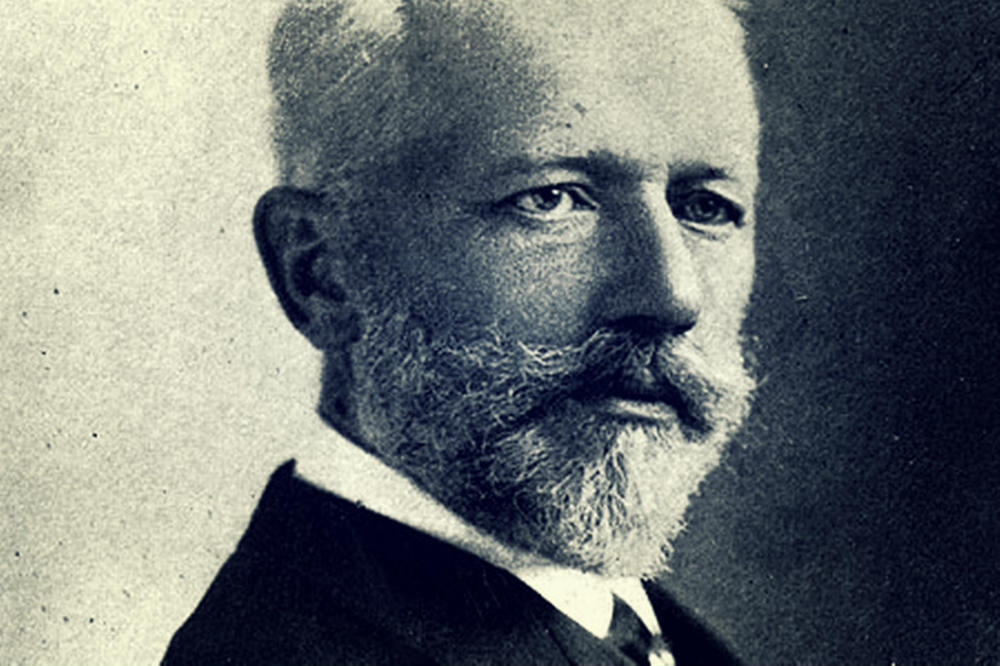In fact, he has been tied to the cliché of emotionalism and easy accessibility and his inventiveness never got the recognition it deserved. Sure, his “Dance of the Sugar Plum Fairy” and the famed Swan theme in the ballet Swan Lake delight adults and children alike for their accessible melodies, and everyone can hum the opening bars of the first Piano Concerto or the 1812 Overture, but several of his orchestral works display complex harmonies that are often overlooked.
The first movement of the Fourth Symphony might evoke “emotional desperation”, but it’s not a wishy-washy work of sentimentalism: it displays a symmetrical structure with a central development and deftly-calculated motives.
His second Piano Concerto is what people refer to as an “acquired taste” –I read that the opening folk motive was once described as a drunken melody– and is much more elaborate than the more famous first. It remains one of the most famously underrated and underperformed works by Tchaikovsky: an “egomaniacal” first movement with a lot of solo work, a somber, melancholic second movement where the piano recedes from the spotlight and accompanies the solo strings, and the finale a circus-like allegro con fuoco.
His Manfred Symphony is a lengthy, programmatic work that he indirectly inherited from Berlioz, who refused to work on it due to old age and ill health: you can find an idée fixe and the bombastic bacchanal in the finale. The stark contrast between the somber first movement and the scherzo-like second movement and the pastorale in the third is another Berlioz-like echo. Toscanini called Manfred Tchaikovsky’s greatest work.
Also, “lightweight” is an odd adjective to use for a composer who penned a violin concerto that almost never was due to its complexity: he wrote it after the unraveling of his sham three-week-long marriage to Antonina Miliukova and the consequent suicide attempt. When he presented it to his friend and court violinist Leopold Auer, he declared it too difficult to perform–ah, those impossibly quick passages in the first and third movements!
The “slushy”, “lightweight” Tchaikovsky built an impressive legacy, influencing dozens of composers: Tchaikovsky’s Fifth Symphony in E Minor inspired Rachmaninoff’s second symphony in E minor, and echoes of it can be heard in Elgar’s E-flat Symphony, which is reminiscent of Tchaikovsky’s andante.
Dmitri Shostakovich has been called the Tchaikovsky of the 20th century, and he is a divisive figure as much as Tchaikovsky used to be not too long ago (overly popular, artistically overlooked). Even though blending high and low music genre has been a “trend” since Mozart’s heyday, Tchaikovsky and Shostakovich were those who took it the furthest: high concepts and fanfare-like and operetta melodies go hand in hand, with Shostakovich also openly showing appreciation for cinema.
What’s more, the more romantic passages in Gershwin’s Rhapsody have a Tchaikovsky-like echo. Both composers have actually been linked together in an article by Leonard Bernstein that appeared in The Atlantic in 1955. “I don’t think there has been such an inspired melodist [as Gershwin] on this earth since Tchaikovsky”, Bernstein argued, “but if you want to speak of a composer,that’s another matter.”
Let’s also consider the hyperintellectual Stravinsky, often pitted against the “overly sentimental” Pyotr Ilic’. He openly admired Tchaikovsky to the point that, in a letter praising his Sleeping Beauty, he wrote: “He possessed the power of melody, centre of gravity in every symphony, opera or ballet composed by him. It is absolutely indifferent to me that the quality of his work was sometimes unequal.” Mainly, he took the treatment of the woodwinds and the technique of melodic variation from Tchaikovsky, which can be evinced, for example, in The Firebird. It’s in his neoclassical Symphony in C, though, that Tchaikovsky’s presence shines the brightest: it’s a work based on restraint and control. Yet during the first movement’s central eruption, Tchaikovsky’s passionate harmonies can be discerned and heard loud and clear.
So, next time you are told that Tchaikovsky is for people who “are not sophisticated enough” to understand the architecturally masterful Bach/Händel/you-name-it, kindly remind them that Tchaikovsky is not limited to the Nutcracker suite and to crowd pleasers with cannonballs. Use this sentence by Robert Cowan for the maximum effect: “His buried soul is as profound as the Austro-German masters with whom he is unfavorably compared”.
If, however, you think that he is the music equivalent of Nicholas Sparks, we invite you to politely share your point of view.


Missed mentioning the melodies of his serenade